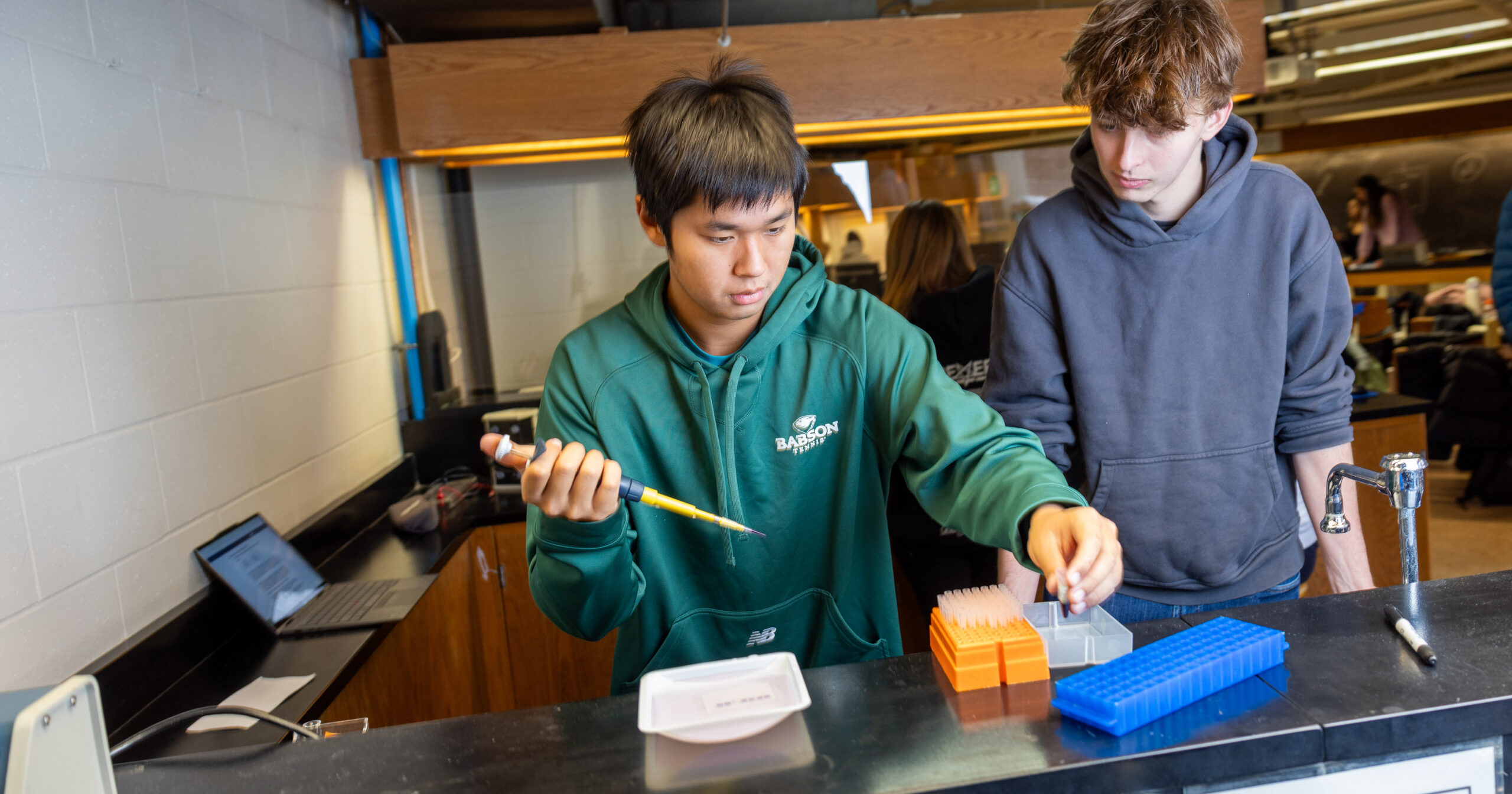What Is the Most Effective Way to Make a Difference?

Growing up in the Los Angeles area, Evadne Cokeh MBA’17 was drawn to solving problems. If a friend was facing a challenge, or if Cokeh was confronted with an unfair situation, she often tried to figure out a solution.
“That is a natural instinct of mine,” she says. “When seeing something not right, I think critically about how it can be different.”
That impulse has stayed with her. As Cokeh grew older and settled into her career, she often thought about this question: What is the most effective way for me to help people and make a difference? For a time, that question led her to the nonprofit sector, but eventually that quest to create positive change led Cokeh to a far different place, namely the corporate world of ButcherBox. “I was intrigued by what the for-profit world could offer,” she says.
At the direct-to-consumer meat brand, Cokeh serves as the vice president of social and environmental responsibility. Some might question why someone with such an altruistic motivation would work for a for-profit company, but Cokeh’s role is an all-encompassing one, touching upon everything from how ButcherBox hires, to who is represented on its website, to the environmental impact of its suppliers.
“I find it meaningful,” she says. “It’s really exciting and motivating to be doing work that I believe to be important—trying to make a better world, to have an impact on the industry ButcherBox is in, to create a better work environment.”
A Company’s Impact
Cokeh’s work at ButcherBox is part of a larger trend, as more and more companies are talking about social and environmental responsibility. Not that increased talk necessarily equates to increased action. Often, a company’s bold marketing doesn’t match the reality of its initiatives.

“It’s really exciting and motivating to be doing work that I believe to be important,” says Evadne Cokeh MBA’17 of ButcherBox. (Photo: Paula Champagne)
“You may be taking some action, but how much is this core to your business and how much are you sacrificing?” Cokeh says. “Any company can have a sustainability report.”
When companies such as ButcherBox make issues of sustainability and equity an integral part of their business, however, Cokeh believes they have the potential to exert a wide-ranging influence on society and the planet.
“If companies are taking this seriously, I think it is really awesome. The impact a company can have is quite large,” Cokeh says. “One change, say McDonald’s looking at greenhouse gas emissions, can have a large impact globally.”
Of course, nonprofits also can make a large societal impact. Cokeh enjoyed working in the nonprofit sector, which included time spent as a church’s director of youth ministries. Still, there were challenges. She found the ongoing fundraising, as well as the constant searching for appropriate grants to pursue, to be tiring.
While nonprofits can be powerful forces to address injustice and inequity, Cokeh looked to work for an organization where raising funds wasn’t such a looming concern. “I really wanted to push forward social impact, and having that on top of a more sustainable financial structure,” she says. “I don’t think the nonprofit model is wrong, but using business as a vehicle to forward change—that resonated with me.”
Urgent Work
Among other initiatives at ButcherBox, Cokeh is helping to eliminate bias in the hiring process, increase the number of ethnic recipes found on the company’s website, collect sustainability data from the farmers and ranchers ButcherBox partners with, and track the amount of carbon emissions from the company’s supply chain.
“I really wanted to push forward social impact, and having that on top of a more sustainable financial structure. I don’t think the nonprofit model is wrong, but using business as a vehicle to forward change—that resonated with me.”
Evadne Cokeh MBA’17, vice president of social and environmental responsibility at ButcherBox
Pursuing such sweeping social and environmental change at a company is not a one-person job. For starters, a company’s leadership needs to be on board. “If my CEO wasn’t supportive of the work, it would be hard to get anywhere,” Cokeh says. Considering the scope of Cokeh’s efforts, the dedication of the rest of the organization also is essential. “The success of this work is dependent on the whole company,” she says. “I consider myself the conductor, ensuring we keep at it.”
Keeping at it is the hard part. Progress on social and environmental issues can be slow, and the problems can feel daunting, even insurmountable. “All this work is so big,” she says. “There is no way, even if I executed everything perfectly, that the work is ever done. Take systemic issues of racism. That work is ongoing. Or environmental sustainability. That work is ongoing. One organization can’t check a box and say, ‘We solved everything.’ ”
The work may be challenging, but the stakes are high. What Cokeh is doing with ButcherBox matters. “Everything feels important and urgent,” she says.




